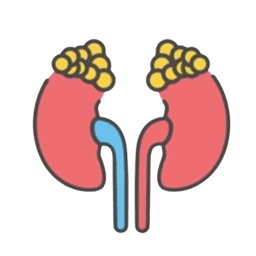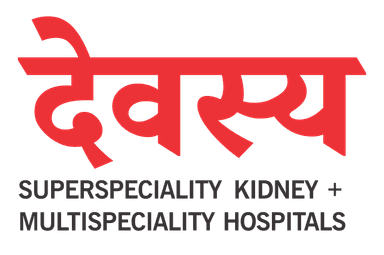Addison’s Disease Treatments & Surgery
How Devasya Hospital Helps to Cure Addison’s Disease?
Devasya Hospital, like many medical facilities, approaches the treatment of Addison's disease through comprehensive care and tailored treatment plans. Devasya Hospital, one of the best hospitals for Addison’s disease treatment, likely offers specialized endocrine care involving experienced endocrinologists who understand the complexities of Addison's disease. These professionals would assess individual cases, considering symptoms, medical history, and diagnostic tests to create personalized treatment strategies. The hospital likely provides advanced diagnostic facilities to accurately diagnose Addison's disease. This may involve blood tests, hormonal assessments, and imaging studies to understand adrenal function and identify the cause of hormone deficiencies. Hospitals often offer hormone replacement therapy using medications like hydrocortisone and fludrocortisone to address cortisol and aldosterone deficiencies, respectively. The hospital's endocrinologists would determine the appropriate dosage and frequency of these medications for each patient.
Devasya Hospital likely provides continuous monitoring of hormone levels and overall health to ensure treatment efficacy and adjust medication dosages as needed. They may also offer education and support for patients to manage their condition effectively in daily life and during times of stress.
A hospital like Devasya likely employs a multidisciplinary team, which might include endocrinologists, nurses, nutritionists, and mental health professionals. This team collaborates to provide holistic care, addressing not only the physical aspects but also the emotional and lifestyle challenges associated with Addison's disease. The healthcare professionals recommend the best hydrocortisone supplements for the treatment of Addison’s disease.
FAQs
Addison's disease, or primary adrenal insufficiency, is a rare condition where the adrenal glands fail to produce adequate amounts of cortisol and sometimes aldosterone. This hormonal deficiency affects various bodily functions, leading to a range of symptoms.
The primary cause of Addison's disease is often an autoimmune reaction, where the body's immune system mistakenly attacks and damages the adrenal glands. Other causes may include infections such as tuberculosis, HIV, adrenal gland damage due to surgery, injury, or certain medications.
Diagnosis involves blood tests to measure hormone levels like cortisol, aldosterone, and adrenocorticotropic hormone (ACTH). An ACTH stimulation test may also be conducted to assess the adrenal glands' response. Imaging tests like CT scans or MRIs might visualize the adrenal glands for any structural abnormalities or damage.
Common symptoms include chronic fatigue, muscle weakness, weight loss, low blood pressure leading to dizziness, hyperpigmentation (darkening of the skin), salt cravings, low blood sugar, and gastrointestinal issues like nausea and abdominal pain.
If left untreated or poorly managed, Addison's disease can lead to potentially life-threatening complications like adrenal crisis, a severe manifestation of adrenal insufficiency characterized by low blood pressure, dehydration, and shock.



